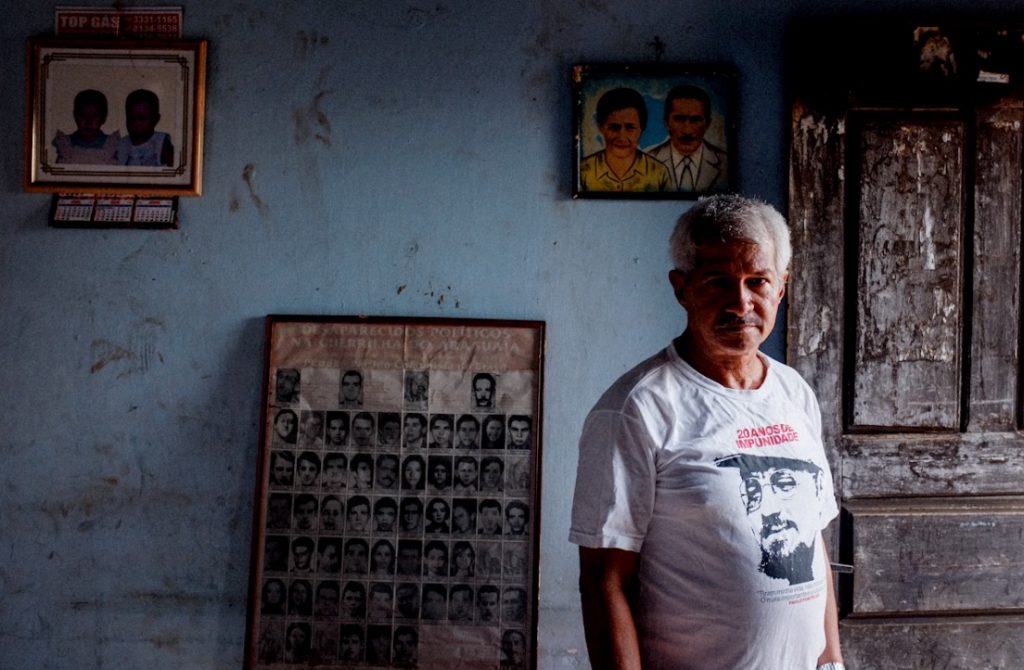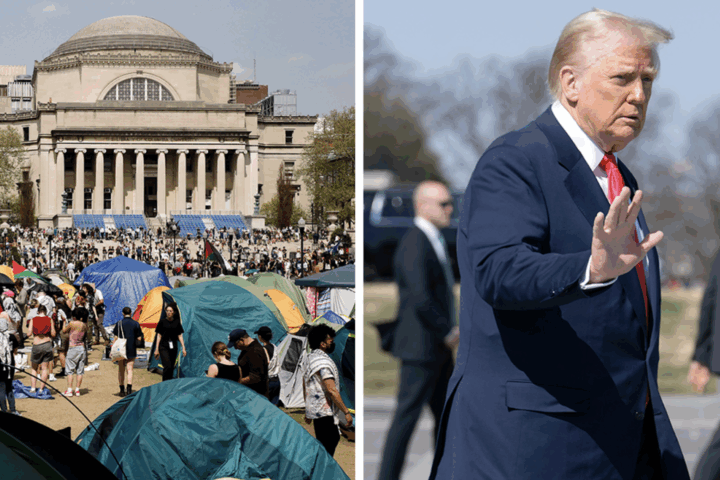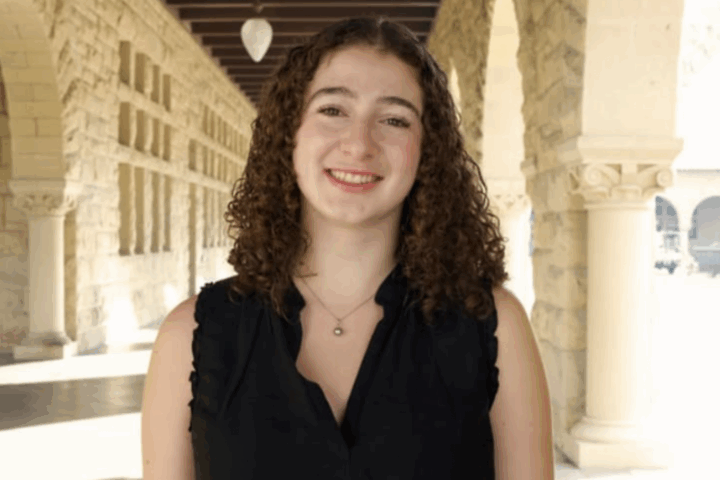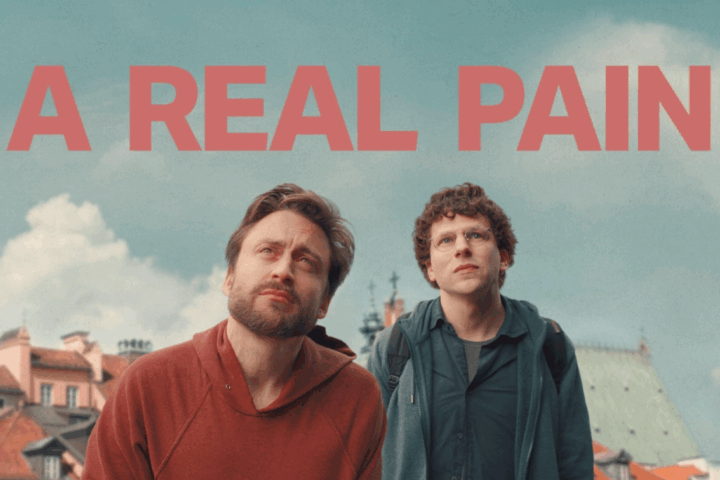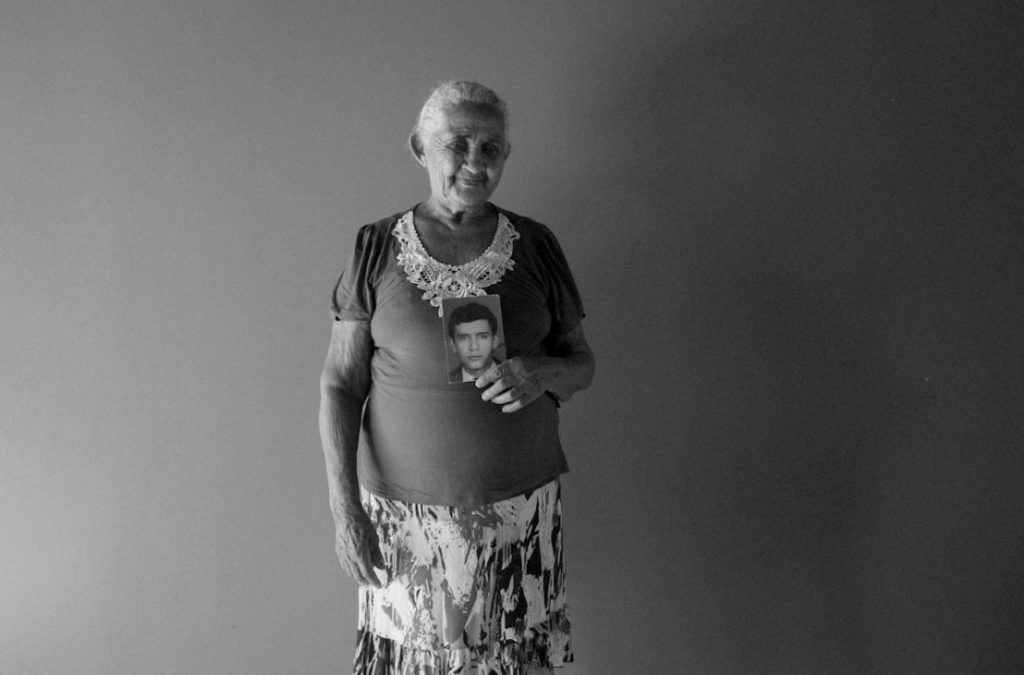
“We need to know our history so that it does not repeat itself,” said Paula Sacchetta during our phone call in Portuguese. Sacchetta, alongside her then-boyfriend Peu Robles, co-directed Verdade 12.528, a documentary that tells the stories of the tortured, persecuted, and missing from Brazil’s military regime. By giving voice to the victims of the atrocities that occurred, Sacchetta does exactly what she says has to be done: informs people of the history that haunts us.
Before making the documentary, Sacchetta and Robles were a part of Frente de Esculacho Popular: a movement that exposed those that once worked alongside the dictatorship as allies or as torturers similar to the Escrache in Argentina or Funa in Chile. Together with other members, Sacchetta wrote letters, spray painted houses, and hung up posters to alert the presence of figures from the military dictatorship. One of those members was Harry Shibata, a doctor that tortured patients, and wrote false obituaries claiming a person died from natural causes when it was clearly from excessive torture; Shibata continues to live freely today. Even though these figures ultimately never got the punishment they deserved, Sacchetta said, “it is interesting to at least expose these people to society.”
The reason many of those torturers were never condemned is the Law of Amnesty from 1979 sanctioned by president Jõao Batista Figueiredo. While the law permitted those that opposed the dictatorship to return from exile, it equally pardoned all politicians and army offices that committed any crimes such as torture or murder since they were supposedly acting under government orders. The law is truly a double-edged sword. “It is very serious how we have not punished the representatives of the military dictatorship. They killed, tortured, and hid bodies but continue to live unpunished,” said Sacchetta.
Even though they were never ultimately punished, The National Truth Commission did indeed expose many of the criminals and crimes committed during the dictatorship. Saccheta said, “It was the first time that Brazil did something [about the dictatorship] after almost 40 years after the end of the dictatorship.” The commission instituted by Dilma Rouseff investigated human rights violations during the dictatorships by inviting victims, witnesses, and state representatives to speak. In the end, it produced a report that named all the people that disappeared, enumerated 377 public agents involved in committing violence, and recommended 29 measures for the country to take to prevent future human rights violations and to prevent history from repeating itself. While it did not result in any concrete action, the commission was a milestone in Brazil’s history since it finally acknowledged the severity of the crimes committed during the military regime.
The idea for the documentary began in a Frente de Esculacho Popular meeting where they discussed The National Truth Commission in 2012. “We started drawing on paper a video of five minutes [to explain the commission] and then we looked at this paper and thought – this could not possibly fit in five minutes,” said Sacchetta. The list of possible interviewees and topics to discuss they generated had grown far beyond a five-minute video, but they decided to go ahead with it anyway. “We said ‘let’s start the film and see what happens,’” said Sacchetta.
Finding people to interview was not an issue. Both Sacchetta’s grandfather and father were militants against the dictatorship thus many of the interviewees were people she knew growing up. Sacchetta said, “these were people that I had intimate familial relationships with. A friend of my dad, a friend of my grandfather, a friend of a friend and so on. So this network of people was already ready. It was super easy to reach these people.” Saccheta mentioned Melinha Peres, a huge symbol of resistance to the dictatorship, as an intimate friend.
The only downside to these interviews was that Sacchetta recalls ruining many of the interviewee’s mornings. “It was very painful to arrive at Bernardo Kucinski’s house on a Saturday morning who is a sweet old man fed up with this history and ask him for the millionth time about the story of his sister that is missing since 1971,” said Sacchetta, “It’s going to engender pain in the person… the person is gonna cry. Ultimately, I went there to ruin his Saturday.”
However, despite the emotional memories, Sacchetta said that they were willing to share since they all understood personally the importance of telling these stories. “All the interviewees believed as much as we do in the mission of the documentary… they understood that we were talking about this for a purpose and that it was not pointless,” said Sacchetta.
In addition to militants and those that lost loved ones, the documentary also travels to the villagers and farmers in Araguaya. Many members of the communist party at the time of the dictatorship fled to hide in the Araguaya River and the movement came to be known as Guerillas do Araguaia. Villagers from Araguaya that met the guerillas in hiding fed them and provided them shelter. However, this polite offering eventually led to their own persecution. The regime tracked the villagers down and ruthlessly tortured them for helping the militants.
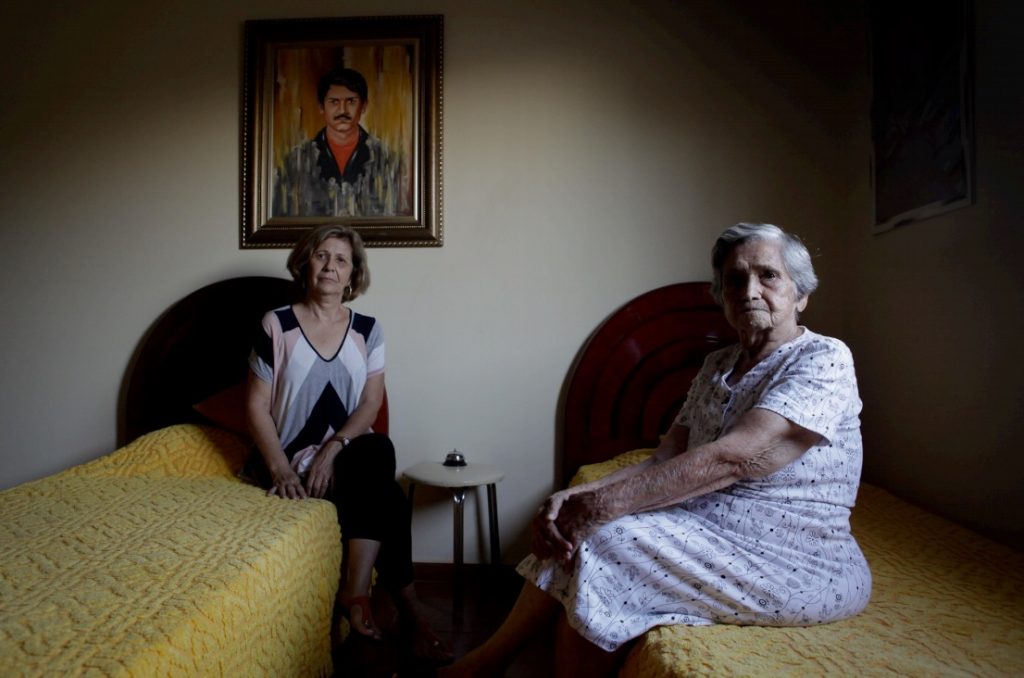
Because of this recent history, many of the villagers were reluctant to schedule interviews from a stranger from a big city like São Paulo. “We spent months trying to schedule interviews but people stopped responding or gave us weird, convoluted answers,” said Sacchetta. She recalls boarding the plane to Araguaya with no scheduled interviews: “I remember when we were entering the plane and I was responsible for scheduling the interviews and everyone turned to me and said, “so how many interviews do we have scheduled?” And I responded, “none.” “You are crazy, what do you mean we have none?” “We are going to have to make the interviews happen there, everyone is very distrustful,” said Sacchetta.
They were suddenly granted a series of interviews, however, after they successfully introduced themselves to the first villager, Seu Pedro. “Seu Pedro loved us; his wife served us the food that she used to serve the guerrillas and Seu Pedro opened the door to all other villagers,” said Sacchetta. In their interviews, the villagers spoke of the trauma and confusion they felt during the dark time. They recalled how nice all the guerrilleros acted towards them and how it only made sense to repay that niceness unknowing of the pain it could and did ensue. In the documentary, Seu Pedro said, “The military committed a big mistake in relation to the villagers. There was a way in which they could capture their enemies without harming us and without doing what they did here.”
When they finished recording all their footage, they were faced with a decision concerning the movie’s length. For a documentary to compete in a film festival it needs to be at least 70 minutes long. Sacchetta, however, had other intentions for this movie. “The two of us were born after the end of the dictatorship, after the citizens’ constitution was instituted in 1988. We didn’t want this to just be another movie about the dictatorship, we wanted it to speak to young people… The country we live in today still has remnants from that period because we didn’t look at our history as a country the way we should have,” said Sacchetta. They decided that the length of this movie should be 50 minutes so that it could be shown in a class period. Sacchetta said, “We wanted this movie to screen at schools more than we wanted it to screen at film festivals”.
Eventually, it became clear to Sacchetta that this had been exactly the right choice. The movie aired in October 2013 which marked 50 years since the coup, and thus, the movie made its way through various universities and schools around Brazil. “I visited two states per week sometimes. They would invite us to make speeches, debate with teenagers,” said Sacchetta. São Paulo’s city government bought one thousand copies of the movie to show at public schools and Sacchetta remembers not even having DVDs of the movie at that point, but after the government requested, she quickly had them made. “The movie was born out of this desire to talk to young people about the dictatorship and it very much succeeded in that sense,” said Sacchetta.
However, despite its success in informing the youth, it additionally received backlash from the older generation. In a film festival in Acre where the documentary was screened but did not compete, there was a heated discussion in the audience post-movie with members of the military that had gone to watch. “The next morning, the city awakened with posters. I woke up with people from the festival knocking on my door saying, ‘Paula and Peu from now on you can only go on the cars from the festival and do not walk by yourself,’” said Sacchetta. The city was cluttered with posters that said, “Brazil is under no command. For the return of the military!” This was not, however, the only instance where Sacchetta felt opposition. She tells me of how people in debates would comment, “You are talking about torture but what about the leftist militants that robbed, stole from banks, sequestered, and so on.” Sacchetta said, “we had to endure this type of thing a lot.”
In all her documentaries after Verdade 12.528, Sacchetta has maintained a steady theme of uncovering injustices and violations of human rights: she made movies about sexual harassment, the prison system, and LGBT youth in São Paulo. “I have a very romantic vision about documentaries. I believe that it is a weapon for transformations in the world,” said Sacchetta. All her movies work to ignite a sense of frustration in the audience in order to incentivize activism.
Saccheta remembers a particularly telling episode when she presented the movie in a class for 300 students in the outskirts of São Paulo with a terrible, low-quality projector on a Saturday morning. All the students watched the entirety of the movie in silence, but when the movie ended and she asked if people had questions, 150 hands shot up. One girl asked, “And now that we know this, what do we do?”
This question affirmed to Sacchetta that she had done her job: “at that moment, I thought, “I rest my case.” I engendered in this girl the sentiment that things are wrong in this world and that we should do something to change them. If I engendered that in this girl, I did my job.”
